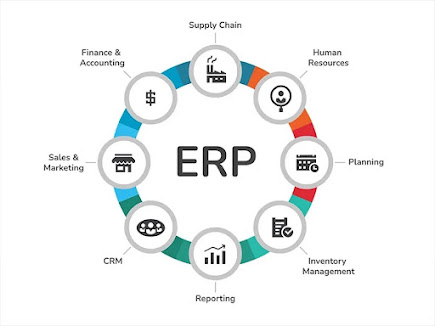A Beginner’s Guide to ERP Systems
Enterprise resource planning (ERP) is a powerful tool used by companies of all sizes to manage and optimize their business operations. ERP systems are designed to integrate all facets of a company, from finance and accounting to human resources and customer service. With an ERP system, businesses can track their performance in real-time, streamline internal processes, increase efficiency, and make decisions quickly. But how do you know which ERP system will work best for your business? Let’s take a look at three popular systems—IFS, Microsoft Dynamics 365, and SAP—to better understand why they’re so popular.
IFS:
IFS is one of the leading enterprise software providers in the world. Their flagship product, IFS Applications™, is an integrated suite of applications that enables companies to manage core business functions like finance & accounting, manufacturing & distribution, project management & services, supply chain management & logistics, human resources & payroll, asset management & maintenance and more. IFS also offers specialized solutions for aerospace & defense manufacturers; automotive suppliers; energy utilities; food processing companies; life sciences organizations; oil & gas producers; professional services firms; retail chains; shipping lines; telecom carriers; and travel agencies.
Microsoft Dynamics 365:
Microsoft Dynamics 365 is Microsoft's cloud-based enterprise resource planning solution that helps businesses manage core operations such as sales force automation (SFA), customer relationship management (CRM), field service automation (FSA), operations planning & scheduling (OPS), business intelligence (BI) and more. It offers users a comprehensive set of tools to drive growth and improve customer engagement while reducing operating costs.
SAP:
SAP is one of the oldest enterprise software providers in the world with over 40 years in operation. Their flagship product SAP S/4HANA is an integrated suite of software solutions designed to help businesses run more efficiently by providing real-time insights into operational data. SAP S/4HANA helps companies automate processes across finance and accounting, human resources management, supplier relationship management (SRM), manufacturing process control & optimization (MPCO), customer relationship management (CRM) and more.
Conclusion:
No matter what type of business you have or what industry you're in, there's an ERP system out there tailored to your needs. By investing in an ERP system that works for your specific requirements now you can get ahead of the competition in terms of scalability and efficiency down the road. Take some time to research which one might be right for you—you won't regret it! Good luck!



Comments
Post a Comment